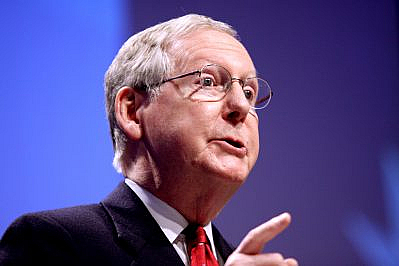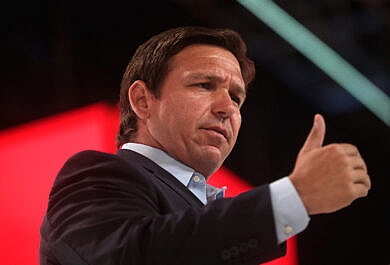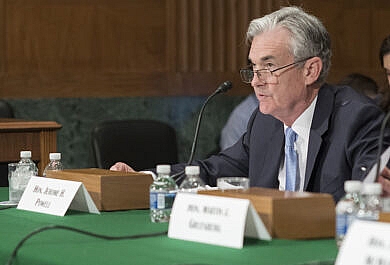The debt ceiling deal brokered by Speaker Kevin McCarthy and President Joe Biden sailed through the Senate with bipartisan support on Thursday night.
Summary
The debt ceiling deal brokered by Speaker Kevin McCarthy and President Joe Biden sailed through the Senate with bipartisan support on Thursday night. The deal’s passage will avert the prospect of a federal default and the bill now heads to Biden’s desk.
- The Senate voted 63-36 to pass the bill, with 46 Democrats and 17 Republicans voting for it, and 31 Republicans and 5 progressives, including Sens. Bernie Sanders (I-VT), Elizabeth Warren (D-MA) and John Fetterman (D-PA), opposing the deal.
- The House had earlier voted to pass the deal by a 314-117 margin. More than 2/3rds of House Republicans supported the compromise while only 71 opposed, almost the inverse of Senate Republicans. This marks the first time well over a decade that a majority of the House Republican Conference supported a debt ceiling hike.
- The deal would raise the debt ceiling to $31.4 trillion while limiting non-defense discretionary spending to a 1-percent annual growth rate.
- Non-defense discretionary spending will be capped for the next four year under the new legislation, dubbed the Fiscal Responsibility Act of 2023. The bill cuts $136 billion in federal spending, claws back tens of billions of unspent Covid-19 funds and imposes new work requirements on food benefit programs.
- Another measure wedged into the bill will restart federal student loan payments on Aug. 30 for the first time since the Trump administration paused student loan payments in March 2020.
- The bill cuts $20 billion in Internal Revenue Service funding approved by Democrats in their partisan spending package last year. However, the IRS is still on track to get nearly three-quarters of the $80 billion budget boost that Democrats pushed through in 2022.
- “I think Speaker McCarthy should be congratulated on capturing a number of priorities,” said Sen. Minority Leader Mitch McConnell, praising McCarthy for securing conservative victories.
- “So, we’ve gone from one party spending $2.7 trillion in two years to a discussion about actually reducing government spending. So, I think the American people’s decision to change House has already yielded benefits for our country,” McConnell added.
![]()
- CNN detailed the next steps for the Treasury Department after five months of using “extraordinary measures” “like “selling existing investments and suspending reinvestments of the Civil Service Retirement and Disability Fund and the Postal Service Retiree Health Benefits Fund” to stretch the nation’s funds until the debt limit was raised. The Treasury plans to hold “cash management bill auctions” to quickly raise cash as soon as the bill is signed into law.
- The New York Times branded Biden “the calm man in the capital” and credited him for using “instincts developed through long, hard, and sometimes painful experience” to broker a deal. The Times contrasted Biden’s subdued public messaging with progressives like Rep. Jamaal Bowman of New York, who asked, “We don’t negotiate with terrorists globally — why are we going to negotiate with the economic terrorists here that are the Republican Party?
- According to NBC News, the key moment in the debt ceiling saga was when House Republicans passed their debt ceiling bill in April, leaving Democratic leaders “stunned,” “flat-footed,” and “surprised.” Biden had “underestimated” McCarthy, leading him to adopt a “simple if ultimately untenable” no-negotiations negotiating position, ultimately leading to the eventual deal.
![]()
- The Wall Street Journal noted the deal claws back nearly $30 billion in unspent Covid-19 relief funds. Most of the funds are actually “unrelated to Covid-19” and are being taken from a swath of federal agencies that apparently planned to span the funds on anything under the sun except Covid-19.
- “The nonpartisan Congressional Budget Office (CBO) estimated that the deal will reduce budget deficits by about $1.5 trillion between 2023 and 2033,” National Review observed. “Some significant concessions to the GOP were made, such as the tightening of work requirements for welfare programs, the expediting of a natural-gas pipeline project in West Virginia, returning unused Covid funds, and rescinding a small fraction of the massive chunk of money granted to the IRS for new tax enforcement.”
- The Washington Free Beacon urged readers to ignore the press criticism of House Republicans because they are overlooking “the real story”: “Kevin McCarthy is shaping up to be the most effective House GOP leader in decades. Biden, the Democrats, and the liberal culture have been unable to transform him into a bogeyman.” McCarthy’s secret? “It pays to be underestimated.”
© Dominic Moore, 2023





